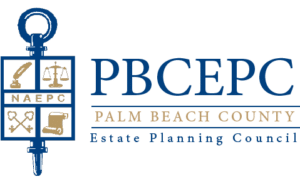
By Joseph C. Pauldine
Cypress Trust Company
Over the past decade, families have experienced a relatively uncomplicated environment when it came to protecting, growing, and transferring wealth. The climate in the stock market has been “investor friendly”, interest rates have remained at near zero levels, property values have increased and there has been a steady rise in the estate tax exclusion amounts…most recently to $11.4 million for 2019.
The outlook going forward, however, gives us reason to pause and possibly rethink strategies for wealth protection and transfer. It is widely expected that interest rates will continue to move higher, while concerns over the economy open up conversations about lower equity return expectations. Recent changes to the tax code with the introduction of The Tax Cuts and Jobs Act of 2017 also contribute to the mix.
In short, the environment looks quite different moving forward than it has in the past ten years.
Making periodic adjustments in direction, strategy and tactics is common whenever circumstances change. Longer-term wealth planning is more fluid than rigid, and consequently it is a good idea to revisit from time to time.
Consider, for example, the average savings rate for Americans has been hovering between 6% – 7% over much of the past decade. While this is lower than conventional thinking recommends, this deficiency has been mitigated by considerable investment returns. From a stand-alone perspective, this isn’t much of a concern. However, a recession could very easily wipe out unrealized gains in investment accounts and may leave near-retirees in a deficit.
It is reasonable to believe that interest rates will rise after close to ten years at near-zero levels. Although it is unlikely that rates will rise significantly in the foreseeable future, it might be a good time for families that are considering transferring wealth to look at some strategies that could lock in current rates without using existing gift tax exclusions. Grantor Retained Annuity Trusts (GRATs) are still a smart option in periods of low rates and the prospect of appreciating assets. The challenge is that the rate of return required by IRS code 7520 will increase as interest rates rise. So as interest rates go up, the trust will have to perform well enough cover that requirement for the duration of the GRAT.
From a longer-term perspective, tax reform also added the element of uncertainty by doubling the estate tax exclusion amount to $11.4 million per individual for 2019. However, unless extended, this benefit is scheduled to expire and the exemption amount will return to $5 million for those who die after December 31, 2025.
It bears repeating that every family situation is unique. The value of the estate (current and future), requirements for income (current and future), tolerance for volatility (current and future), and tax considerations (current and future) are but some of the factors that require care and attention. Consult your trusted advisors to evaluate the range of options available based on your family’s circumstances and make sure to build in flexibility along the way.
It is very difficult to predict what the next ten years will bring. Consequently, careful consideration should be given to every family’s needs and circumstances before implementing any plan. One final thing to keep in mind in all of this is to not worry about becoming overwhelmed. One of the reasons for both starting your estate plan (as well as reviewing it periodically) is to make minor course adjustments along the way without the pressure of feeling like you’ve run out of time.
Joseph C. Pauldine is a Senior Vice President of Cypress Trust Company. Mr. Pauldine assists individuals and their families with custom investment management solutions and trust administration services. He received his B.S. in Business Administration from Old Dominion University.
Cypress Trust Company is a boutique corporate fiduciary that focuses on creating customized investment strategies, serving as a corporate trustee, personal representative or agent during estate settlement, and as an administrative trustee for clients already committed to an investment plan.
